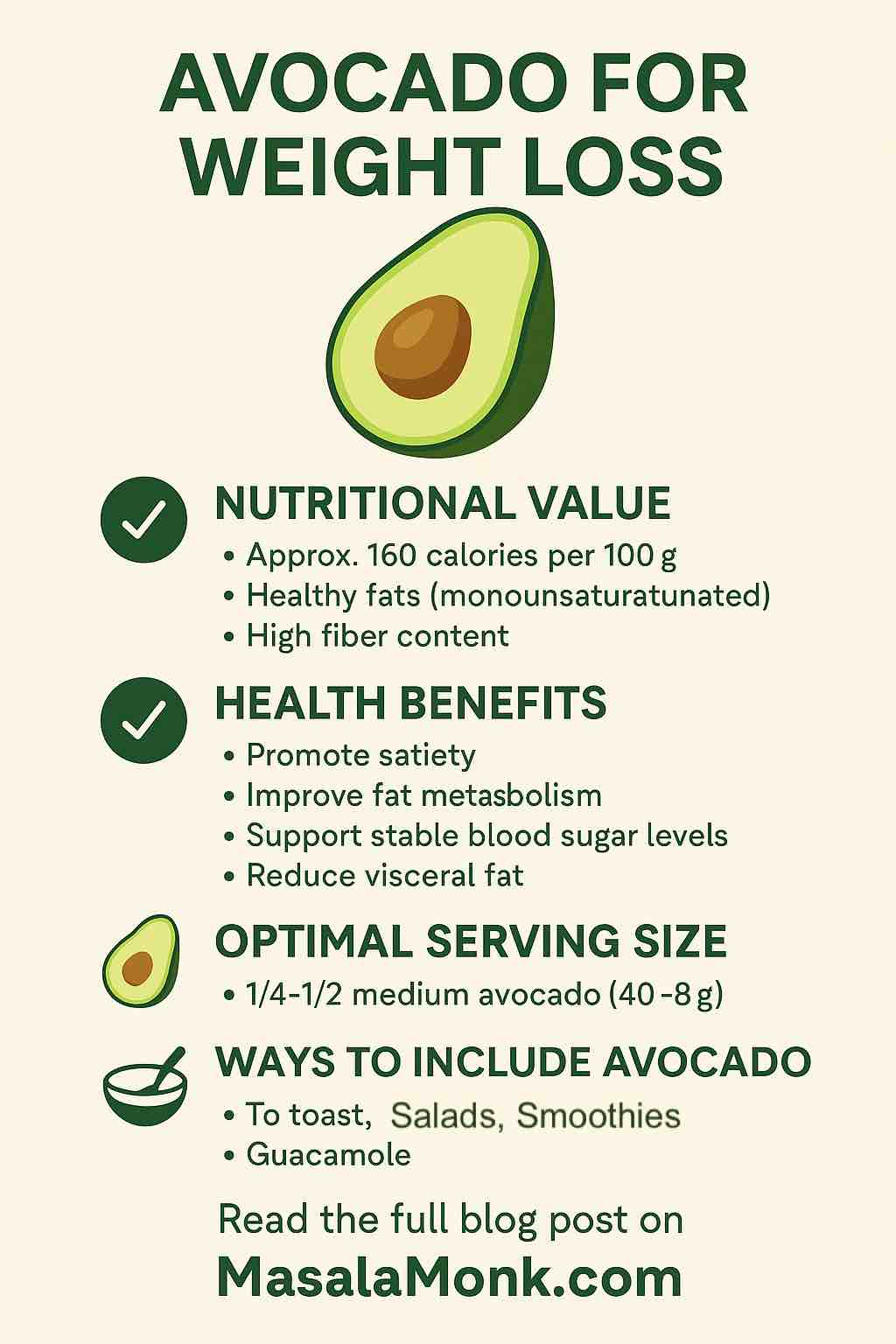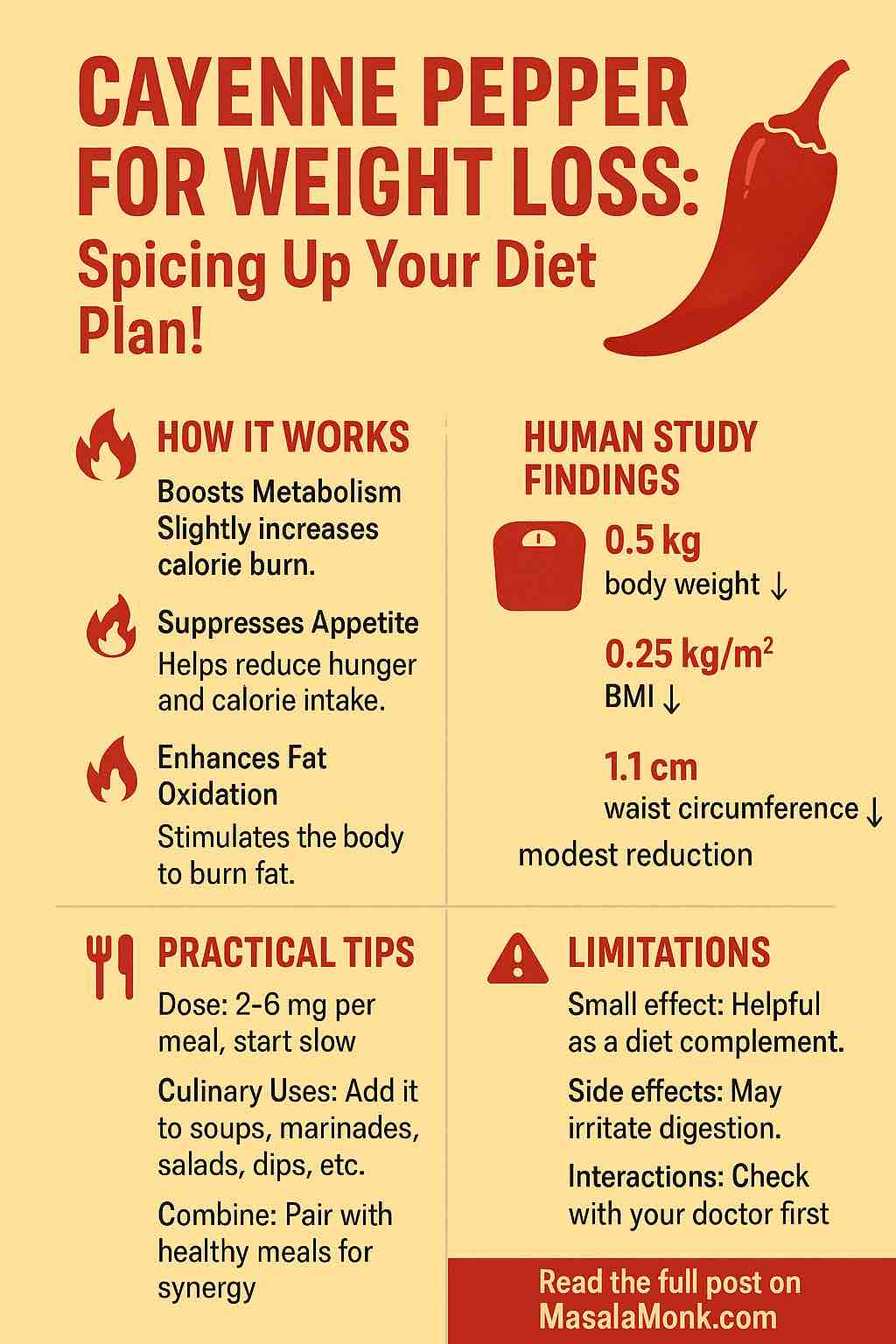
Avocados have long been celebrated as a superfood, gracing the tables of the health-conscious with their creamy texture and rich flavor. But beyond their taste, do avocados truly support weight loss? The short answer: yes, when used wisely. This blog dives into the latest research (up to mid-2025), offering practical insights into how avocados can help you shed fat, improve your health, and even sleep better.
Why Avocados Deserve a Place in Your Weight Loss Journey
Avocados are nutrient powerhouses packed with healthy monounsaturated fats, dietary fiber, and a broad spectrum of vitamins and minerals. Here’s why they stand out:
- High Satiety Factor: The combination of fiber and fat promotes feelings of fullness, curbing hunger and helping reduce overall calorie intake.
- Fat Quality Over Quantity: Avocados contain oleic acid, a monounsaturated fat linked to improved fat metabolism and reduced belly fat.
- Low Glycemic Index: Unlike high-carb foods, avocados won’t spike blood sugar, making them ideal for insulin-sensitive individuals.
The Science: Latest Research Findings (2024–2025)
1. Visceral Fat Reduction (Especially in Women)
A randomized controlled trial in 2021 involving 105 overweight adults found that consuming one avocado daily for 12 weeks significantly reduced visceral belly fat in women. While the same effect wasn’t observed in men, this highlights the potential gender-specific benefits of avocados for fat distribution.
2. Improved Gut Microbiome
A 26-week study as part of the Habitual Diet and Avocado Trial (HAT) showed that daily avocado intake significantly improved gut microbiota diversity, especially in those with initially poor diets. A healthy gut is increasingly linked to effective weight management.
3. Better Sleep Quality
In a trial with nearly 1,000 participants, consuming a medium Hass avocado daily increased average sleep duration by 30 minutes. Nutrients like magnesium, tryptophan, and fiber may be responsible for this boost in rest, which is crucial for weight control.
4. Diet Quality and Inflammation
Participants in the HAT trial also improved their Healthy Eating Index scores by 3.5 points and saw reductions in LDL cholesterol and CRP, a marker of inflammation. Even without weight loss, these changes support long-term health and easier fat loss.
Practical Tips: How Much Avocado Should You Eat?
While avocados are healthy, they’re also calorie-dense. Portion control is key.
| Serving Size | Amount | Calories | Fat | Fiber |
|---|---|---|---|---|
| 1/3 avocado | ~50g | ~80 kcal | ~7g | ~3g |
| 1/2 avocado | ~75g | ~120 kcal | ~11g | ~5g |
| 1 avocado | ~150g | ~240 kcal | ~22g | ~10g |
Optimal daily intake for weight loss: 1/4 to 1/2 medium avocado (40g–80g).
How to Incorporate Avocado into a Weight-Loss-Friendly Diet
Here are some simple and tasty ways to make avocado part of your routine:
- Morning Fuel: Spread mashed avocado on whole-grain toast, top with a poached egg.
- Smoothies: Blend 1/4 avocado into a protein shake for creaminess and satiety.
- Salad Boost: Add cubes or slices to salads instead of high-fat dressings.
- Smart Snacks: Dip veggie sticks in homemade guacamole for a nutrient-rich snack.
- Swap Ingredients: Use avocado instead of mayonnaise or butter in sandwiches and wraps.
Common Pitfalls to Avoid
- Overeating: It’s easy to exceed your calorie target. Measure your portions.
- Pairing with Junk Food: Guacamole with chips defeats the purpose. Try veggies instead.
- Thinking It’s “Free”: Nutrient-rich doesn’t mean you can eat unlimited quantities.
Final Thoughts
Avocados are more than just a trendy toast topping. When used mindfully, they offer serious advantages in your weight loss journey. From shrinking belly fat and enhancing gut health to improving sleep and reducing inflammation, they pack a powerful punch.
To get the best results, eat avocados regularly but in moderation, and focus on replacing less healthy fats with them. Over time, your body — and waistline — will thank you.
Ready to Try It? Start with 1/3 avocado per day for two weeks. Track how you feel, how you sleep, and whether your cravings decrease. You might be surprised how far one fruit can go.
🧾 Summary Table
| Outcome | Evidence Source | Result |
|---|---|---|
| Visceral fat ↓ (women) | RCT (12 wk, n=105) | ✅ Significant reduction |
| Gut microbiome diversity ↑ | HAT subset (26 wk, n=230) | ✅ Sustained alpha diversity ↑ |
| Sleep duration +30 min | RCT (26 wk, 969 adults) | ✅ Mean sleep ↑ 6.4→7.0h |
| Diet quality & LDL ↓ | HAT (26 wk, >1,000 adults) | ✅ HEI +3.5; LDL ↓; CRP ↓ |
| Overall cardiac score ~no change | Ancillary HAT study | ⚠️ No net LE8 score improvement |
📝 Key Takeaways
- Strong evidence supports avocado’s role in reducing visceral fat (especially in women), enhancing satiety, improving sleep, boosting gut microbiome, and raising diet quality.
- Total weight/BMI remains stable, but body composition improves.
- Optimal intake: ~100–150 g/day (~one medium avocado) as part of a calorie-balanced diet.
- Gut and sleep benefits typically emerge after 4–12 weeks; diet/lipid effects within 26 weeks.
🥑 Frequently Asked Questions (FAQs)
1. Can I eat avocado every day while trying to lose weight?
Yes, you can eat avocado daily—ideally 1/4 to 1/2 of a medium fruit—to support satiety and metabolic health without overloading on calories.
2. Are avocados fattening because they’re high in fat?
No. While avocados are high in fat, it’s primarily monounsaturated fat, which is beneficial for fat metabolism and does not promote weight gain when eaten in moderation.
3. Is it better to eat avocado in the morning or at night?
Either works, but morning consumption may help curb cravings during the day. Evening intake could support better sleep due to avocado’s magnesium and tryptophan content.
4. Can I eat avocado on a low-carb or keto diet?
Absolutely. Avocados are low in net carbs and high in healthy fats, making them ideal for both keto and low-carb diets.
5. How should I store leftover avocado to prevent browning?
Sprinkle lemon juice on the cut surface, wrap tightly in plastic wrap, and refrigerate. Or store with a slice of onion in an airtight container.
6. Is guacamole a healthy snack for weight loss?
Yes—if paired with vegetables or whole-grain options. Avoid high-calorie chips or excessive sodium-loaded versions.
7. Can avocado help reduce belly fat specifically?
Some studies show daily avocado intake may reduce visceral fat, especially in women. While not a magic bullet, it’s supportive when combined with a balanced diet.
8. What’s healthier: eating avocado raw or in cooked dishes?
Raw preserves more nutrients, but light cooking or blending into warm dishes (like soups) is fine. Just avoid frying it.
9. How does avocado help with sleep?
It contains magnesium, potassium, and tryptophan—all known to support restful sleep, which is linked to better weight control.
10. Can I replace butter or mayo with avocado?
Yes. Swapping in avocado for spreads like butter or mayo reduces saturated fat and adds fiber and micronutrients—great for heart and metabolic health.













